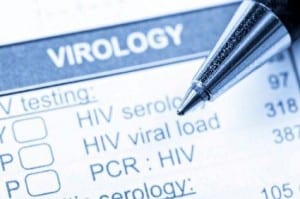Sexual Health: Intersections in politics and society
By ucyow3c, on 18 November 2014
![]() Written by Michael Espinoza, PhD candidate, UCL Institute of the Americas
Written by Michael Espinoza, PhD candidate, UCL Institute of the Americas
 “By then, it was too late to hate him [for being gay].” – a self-described ‘former gay-basher’ reveals how he unknowingly befriended a gay man.
“By then, it was too late to hate him [for being gay].” – a self-described ‘former gay-basher’ reveals how he unknowingly befriended a gay man.
This testimonial, part of a research project by Dr Richard Mole (UCL School of Slavonic Studies and Eastern European Studies), shows how a lack of human understanding can dictate how people relate to others whom they perceive as ‘different’. The difference in this instance involved sexuality and its relation to sexually transmitted infections (STIs).
The first presenter was Professor Jonathan Bell (UCL Institute of the Americas), whose paper was titled The Economic Closet: healthcare, sexuality, and the politics of respectability during the AIDS crisis.
Professor Bell discussed how healthcare politics in the 1980s saw gay rights leaders face two difficulties – one was the struggle against private health insurance companies and the other was the attempt to “adapt the socially-regressive and gendered New Deal safety net to their needs”.
Not only did they have to accept that HIV positive gay men “had to be classified as disabled and unable to work to be entitled to welfare”, they also had to fight against profit-driven private health insurance companies who sought to portray HIV positive gay men as unproductive citizens who have “sexually promiscuous lifestyles” in order to deny their claims.
What I took away from Professor Bell’s paper is how this was primarily a battle for economic rights rather than civil rights.
The second presenter was Dr Mole, and his paper was titled The Impact of Migration on the Sexual Behaviour and Attitudes of Central and East European Gay/Bisexual Men in London.
Dr Mole discussed how gay men migrating to London from Central and Eastern Europe had a sexual awakening, but this led to a higher “prevalence for STIs” among certain groups. Although they left behind the societal controls of home, “a lack of sex education” contributed to a misconception of what was safe sex. The migrants may have gained sexual freedom, but the societal norms they left behind “made it difficult to communicate and emphasise safe sex”.
However, Dr Mole concluded that “over time, respondents became more confident in their sexual identification”, as well as being “more prepared to take steps to reduce high-risk sexual behaviour”.
I attended the seminar curious to learn how sexuality, European migration and American healthcare politics could be interconnected. I know more about American healthcare politics than I do about sexuality and Central/Eastern migration to the United Kingdom, and I was unsure what to expect, as well as how much interconnection was possible between two papers with such different research interests.
From Professor Bell’s talk, the battle for economic rights in the 1980s was the next step beyond self-awareness. Prejudice still existed but had transitioned into the realm of the existing health coverage dilemma in the United States, which differed from the experience in the United Kingdom at the same time. With the National Health Service, healthcare is a right, where within the context of the US it was associated with productivity, which is often defined within the context of traditional morals and a healthy lifestyle.
Listening to Dr Mole’s talk, I learned how being open with one’s sexuality is a progression. The past social controls left behind still linger and take time to overcome. First comes the sexual awakening, then the mental acceptance that communicating with sexual partners is part of intimacy, as well as part of practicing safe sex.
From this seminar I learned that sexual health is a very complex topic, but common issues can be found. Both papers demonstrated how coming out was the first struggle, and brought with it wider ramifications for both the personal health of migrants to the UK and access to healthcare in the US.
 Close
Close

